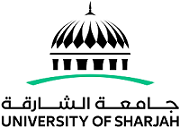Assessment of Regulatory Reforms to Enhance the Viability of Waste to Energy Systems /
Linked Agent
Abdallah, Mohamed,, Thesis advisor
ُShanableh, Abdallah., Thesis advisor
Inayat, Abrar., Thesis advisor
Date Issued
2023
Language
English
Thesis Type
Thesis
Abstract
Waste management has become a major global challenge for governments due to the exponential population growth, improved standards of living, and consumption patterns, thus, requiring proper municipal solid waste (MSW) management. Recently, decision-makers have been considering the application of waste-to-energy (WTE) systems to achieve sustainable waste management while providing reliable renewable energy (RE) sources. However, the absence of regulatory policies restricts the integration of WTE systems in most developing countries. Therefore, the present study proposes and examines the application of regulatory and policy reforms to promote the implementation of waste conversion systems. The study was conducted in Abu Dhabi, United Arab Emirates (UAE), as it has multiple sustainability targets that could be achieved through well-integrated WTE systems within the waste management sector. This study introduced a comparative hybrid analysis framework based on energy, economic, and environmental perspectives of various well-established WTE technologies. The waste conversion systems were designed and simulated using Aspen Plus software to determine the process outcomes based on local MSW characteristics and operating conditions. Multiple integrated solid waste management (ISWM) strategies were compared to typical scenarios of conventional landfilling and landfill gas recovery systems. The analysis was focused on three major reforms: feed-in tariff (FiT), renewable portfolio standards (RPS), and source separation awareness (SSA). The analysis results are intended to be shared with government entities for their implementation of WTE systems in Abu Dhabi, and potentially the entire UAE. Six WTE-based ISWM strategies were designed based on different combinations of thermochemical systems, incineration (INC) and gasification (GASI), as well as biochemical systems, anaerobic digestion (AD) and fermentation (FER). Within each strategy, conventional landfills were included for the ultimate disposal of by-products, whereas ma
Note
A Dissertation Submitted in Partial Fulfilment of the Requirements for Master Science in Civil Engineering, University of Sharjah, March, 2023.
Category
Theses
Library of Congress Classification
TD794.5 H333 2023
Local Identifier
b16376146

